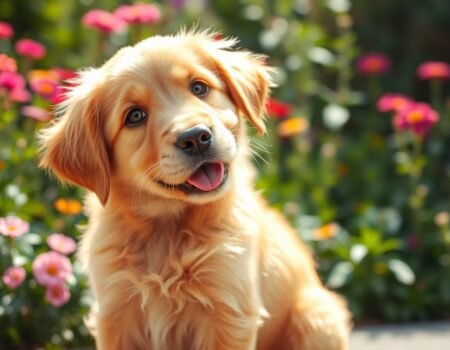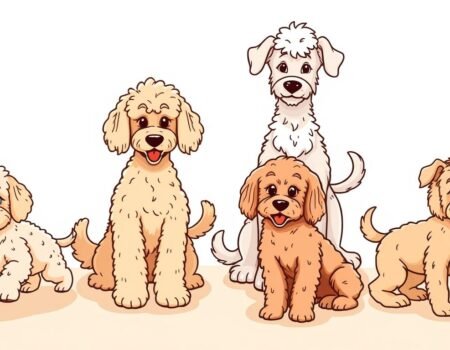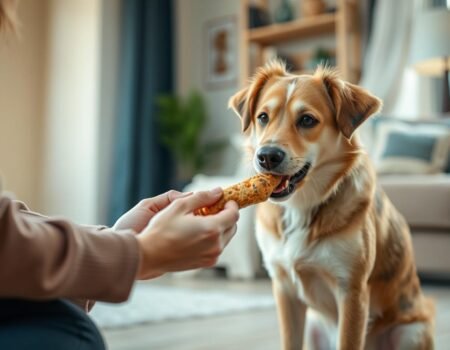Did you know that Cane Corsos, those majestic Italian Mastiffs, are often misunderstood and unfairly labeled as aggressive?
Despite their imposing presence and protective nature, the reputation of Cane Corsos as aggressive dogs might be more myth than reality. While it’s true that they have the potential for aggression, proper training and understanding can prevent any aggressive tendencies.
Key Takeaways:
- Cane Corsos are often mistaken for being inherently aggressive.
- No dogs are born aggressive; aggression can often be a result of poor training or traumatic experiences.
- Understanding the history and characteristics of the Cane Corso breed can help prevent aggression.
- Proper socialization, training, and responsible ownership can result in a loyal and well-behaved Cane Corso.
- It is important to distinguish between the breed’s potential for protective behavior and actual aggression.
The History of Cane Corsos
Cane Corsos, a breed of working dogs, have a rich history that traces back to the ancient Greek tribe called Mollosi. These impressive dogs, belonging to the Molossus dog group, were initially trained as war animals and were highly valued for their protective instincts on the battlefield.
Named after their Greek ancestors, the Cane Corsos gradually transitioned to various roles, such as guarding property, hunting boars, and herding livestock. Their strength, intelligence, and loyalty made them indispensable for these tasks.
However, the Cane Corso breed faced a challenging period during the 20th century when it neared extinction. Fortunately, dedicated enthusiasts recognized the historical significance and unique qualities of this breed, leading to their revival through careful breeding programs.
The Cane Corso’s roots date back to ancient times, and their remarkable journey from war animals to guard dogs is a testament to their enduring characteristics.
In 2010, the American Kennel Club (AKC) officially recognized the Cane Corso breed, acknowledging their importance and distinct presence in the dog community.
Are Cane Corsos Aggressive?
While no dogs are born aggressive, it is important to understand the temperament of Cane Corsos and how to manage their potential aggression. These dogs are typically wary of strangers due to their innate guarding instincts. However, with proper socialization and training, they can learn to tolerate and accept the presence of strangers to some extent. It is crucial to note that Cane Corsos will never display the same level of affection towards strangers as golden retrievers or Labradors would. Their well-trained nature often exhibits aloof behavior, and they may react aggressively if their personal boundaries are invaded.
As responsible owners, we should focus on providing Cane Corsos with the necessary training and avoid engaging in aggressive behavior in their presence. By establishing clear boundaries, consistently reinforcing positive behaviors, and socializing them from an early age, we can help manage their potential for aggression and ensure a harmonious relationship with these remarkable dogs.
Factors That Make a Cane Corso Aggressive
When considering the aggression level of a Cane Corso, it is important to understand that genetics alone do not determine their behavior. Training and environment also play significant roles in shaping their aggression. Harsh training methods and aggression towards these dogs can actually make them more prone to aggression.
Each Cane Corso has an individual personality and temperament, which can also contribute to their aggression. Some individuals may be naturally more reactive or dominant, requiring special attention and training to prevent aggressive behavior.
One key factor in preventing aggression in Cane Corsos is to purchase from reputable breeders who selectively breed puppies to promote sound temperament and reduce the risk of aggression. These breeders prioritize proper socialization and provide a safe, nurturing environment for the puppies to thrive.
Understanding these factors and taking proactive measures can help prevent aggression in Cane Corsos and promote a healthier, well-balanced breed.
“It is essential to provide a positive and supportive environment for Cane Corsos, ensuring they receive appropriate training and socialization to nurture their well-being.
| Factors That Can Make a Cane Corso Aggressive | Preventive Measures |
|---|---|
| Harsh training methods and aggression towards the dog | Utilize positive reinforcement techniques and gentle, consistent training methods |
| Individual personality and temperament | Provide proper socialization and training tailored to the dog’s needs |
| Genetic predisposition | Purchase from reputable breeders focused on breeding for sound temperament |
| Inadequate socialization and exposure to various environments | Expose the dog to different people, situations, and environments from a young age |
Proactive Approaches to Prevent Aggression
1. Early socialization: Introduce the Cane Corso puppy to new experiences, people, and animals to build their confidence and positive associations.
2. Positive reinforcement training: Reward desired behavior with treats, praise, and affection, and avoid punishment-based methods that can instill fear or aggression.
3. Clear boundaries and rules: Establish consistent rules and boundaries through obedience training to ensure the dog understands their place in the family hierarchy.
4. Mental and physical stimulation: Engage the Cane Corso in regular exercise, play, and mental enrichment activities to prevent boredom and channel their energy into positive outlets.
By considering these factors and adopting proactive approaches, we can help create a harmonious and well-balanced temperament in the magnificent Cane Corso breed.
Are Cane Corsos Banned?
Cane Corsos have acquired a bad reputation due to isolated reports of biting and attacking. As a result, many states in the US have banned or restricted the ownership of this breed. Some countries in Europe, such as France and Germany, have also restricted ownership. It is essential to check local laws before buying a Cane Corso to avoid legal repercussions. However, it is important to note that not all Cane Corsos are aggressive, and responsible ownership can prevent dangerous behavior.
How to Prevent Your Cane Corso From Becoming Aggressive
Training and socialization are crucial aspects in preventing aggression in Cane Corsos. By providing your Cane Corso with the right foundation, you can shape their behavior and ensure they grow into well-mannered and balanced dogs.
Early Socialization:
Early socialization plays a vital role in helping your Cane Corso build positive associations with the world around them. Introduce them to new people, animals, environments, and experiences gradually and in a positive manner. This helps them develop confidence, reduces fear, and minimizes the likelihood of reactive or aggressive behavior.
Obedience Training:
Obedience training should be implemented early on to establish boundaries and discourage aggression and dominance. Teach your Cane Corso basic commands such as sit, stay, and recall. This helps them understand their role in the family hierarchy and promotes respectful behavior. Use positive reinforcement techniques, such as treats and praise, to reward good behavior and motivate them to learn.
Bite Inhibition Training:
During puppyhood, it is essential to teach your Cane Corso bite inhibition. This involves teaching them to control the force of their bites, which can prevent potential harm if they ever feel the need to defend themselves. Provide appropriate chew toys and redirect their biting behavior towards these toys instead of human hands or furniture.
Leading and Rewarding Calm Behavior:
Teach your Cane Corso to take the lead and make good decisions in various situations. Reward calm and friendly behavior, and set them up for success by avoiding scenarios that may trigger fear, anxiety, or aggression. This can include gradually exposing them to new stimuli, ensuring their interactions with strangers are positive, and providing mental and physical stimulation through games, puzzles, and exercise.
Consistency is key in preventing aggression in Cane Corsos. Training and socialization should be ongoing throughout their lives, reinforcing the positive behaviors they have learned. Remember to be patient, as every dog is unique and may require different approaches to training. By investing time and effort into their development, you can ensure that your Cane Corso becomes a well-adjusted and non-aggressive companion.
Overview of the Cane Corso Breed
The Cane Corso breed is known for its impressive physical presence and protective instincts. Descended from the ancient Molossus dogs, they have a rich history as loyal companions and guardians. Proper training and socialization are essential to shape their behavior and prevent aggression. Understanding the characteristics of this breed will help foster a harmonious relationship with these magnificent dogs.
Cane Corsos are known for their imposing stature and muscular build. They have a commanding presence, which naturally contributes to their protective instincts. These dogs are fiercely loyal to their families and possess a strong desire to defend them. Their instinctive nature as guardians makes them excellent protectors.
When it comes to behavior, Cane Corsos have a loyal and affectionate nature. Once they form a bond with their family, they are deeply devoted. They thrive on human companionship and enjoy being an integral part of the family unit. These dogs are known to be gentle and affectionate with their loved ones, making them wonderful companions.
However, it is crucial to understand that responsible ownership includes proper training and socialization. These factors play a significant role in shaping the behavior of Cane Corsos. Early and consistent training will help establish boundaries and reinforce positive behaviors. Socialization allows them to become familiar with different people, animals, and environments, fostering confidence and preventing anxiety or aggression.
Characteristics of the Cane Corso Breed:
- Impressive physical presence
- Loyal and protective nature
- Affectionate with family members
- Commanding and imposing stature
- Fiercely devoted and devoted to their families
- Require proper training and socialization to prevent aggression
Understanding these characteristics will contribute to a fulfilling and rewarding relationship with your Cane Corso. By providing them with the necessary training, socialization, and love, you can ensure they thrive in your care.
How Dangerous are Cane Corso Dogs?
Cane Corsos are known for their imposing size, strength, and natural prey drive. While they may not have as many reported attacks as some other breeds, their attacks can be more severe due to their physical attributes. It is important to understand the potential risks associated with owning a Cane Corso and take necessary precautions to ensure the safety of both the dog and those around them.
Providing adequate training is crucial in managing aggression in Cane Corsos. These dogs require structured obedience training from an early age to establish boundaries and discourage aggressive behavior. It is important to socialize them well with various people, animals, and environments to help them develop good manners and prevent fear or aggression towards unfamiliar situations.
Responsible ownership is also key in managing the potential dangers of Cane Corsos. This means providing them with proper exercise, mental stimulation, and a balanced diet to help maintain their overall well-being. It is important to securely fence in your yard and always keep them on a leash when outside the confines of a controlled environment.
“Proper training and socialization are essential in managing aggression and ensuring the safety of both the Cane Corso and those around them.”
Understanding the characteristics of the Cane Corso breed is crucial in effectively managing their potential for aggression. These dogs are known for their loyalty, intelligence, and protective nature, which can manifest as aggression if not properly channeled. It is important to provide them with outlets for their physical and mental energy, such as regular exercise, puzzle toys, and obedience training sessions.
Preventing Aggression in Cane Corsos: Tips and Recommendations
To help manage aggression in Cane Corsos and create a safe environment, consider the following:
- Start training and socializing your Cane Corso from a young age to establish a strong foundation of obedience and good behavior.
- Expose them to different people, animals, and environments to help them become well-rounded and comfortable in various situations.
- Use positive reinforcement techniques, such as rewards and treats, to encourage desired behavior and discourage aggressive tendencies.
- Establish clear boundaries and consistent rules within your household to help your Cane Corso understand their role and expectations.
- Seek professional help from a certified dog trainer or behaviorist if you encounter any aggression or behavior problems that you are unable to address on your own.
By taking proactive steps to manage aggression in Cane Corsos and understanding their unique breed characteristics, you can create a safe and harmonious environment for both you and your furry companion.
Comparing Aggression Management Methods for Cane Corsos
| Aggression Management Methods | Description | Effectiveness |
|---|---|---|
| Pet Professional Training | Seeking help from a certified dog trainer or behaviorist to address aggression issues and provide a tailored training plan. | Highly effective with professional guidance and expertise. |
| Positive Reinforcement | Rewarding good behavior with treats, toys, and praise to encourage positive associations. | Effective in shaping desired behavior and creating a trusting relationship. |
| Consistent Boundaries | Establishing clear rules and expectations to help your Cane Corso understand their role within the household. | Key in preventing confusion and providing structure. |
| Early Socialization | Introducing your Cane Corso to various people, animals, and environments from a young age to prevent fear and aggression. | Effective in building confidence and reducing the likelihood of aggression. |
A Cane Corso’s Prey Drive and Aggression
Cane Corsos are known for their strong prey drive, which is an instinctual behavior inherited from their hunting ancestors. This natural drive can sometimes lead to unpredictable behaviors and potential aggression in specific situations.
To ensure the well-being and safety of your Cane Corso, it is essential to understand and manage their prey drive through proper training and socialization. By channeling their energy and providing constructive outlets for mental stimulation, we can help prevent unwanted behaviors and maintain a balanced temperament.
A good approach to managing their prey drive is through incorporating regular exercise routines into their daily lives. Engaging in activities such as long walks, vigorous play sessions, and mental stimulation games can help satisfy their instinctual needs, reducing the likelihood of aggression.
Additionally, structured training is crucial in teaching your Cane Corso appropriate behaviors and manners. Obedience training can help establish clear boundaries, reinforce discipline, and discourage aggressive tendencies. Consistency in training methods and positive reinforcement techniques, such as rewarding good behavior and redirecting negative behaviors, are effective approaches in managing their prey drive and preventing aggression.
Providing ample socialization opportunities
Socialization plays a vital role in shaping a Cane Corso’s behavior and temperament. Exposing them to various environments, people, animals, and different situations from an early age can help them develop appropriate social skills and reduce the likelihood of fearful or aggressive responses.
Providing a variety of positive experiences will help your Cane Corso navigate the world with confidence and ease. Gradually introducing them to new stimuli and monitoring their reactions can help identify any potential triggers or signs of aggression, allowing for timely intervention and appropriate training. Remember, a well-socialized Cane Corso is more likely to have a balanced and non-aggressive disposition.
It’s important to note that each Cane Corso is an individual, and their level of aggression can vary. Some may have a strong prey drive but display minimal aggression, while others may require extra attention and management. Monitoring their behavior, seeking professional guidance if necessary, and tailoring training methods to their specific needs can help ensure a harmonious and safe environment for both your Cane Corso and those around them.
Summary:
Cane Corsos possess a strong prey drive, which can contribute to potential aggression if not properly managed. By understanding their instincts, implementing consistent training techniques, providing socialization opportunities, and meeting their exercise and mental stimulation needs, we can effectively manage their prey drive and prevent aggression. Remember, responsible ownership and proactive training are key to maintaining a well-behaved and balanced Cane Corso.
Conclusion
In conclusion, there are common misconceptions about the aggression level of Cane Corsos. It is important to understand that aggression is not inherent in their genes. With proper training, socialization, and responsible ownership, Cane Corsos can be loyal and loving companions. Despite their history as guard dogs and their physical attributes, aggression can be prevented through understanding their breed characteristics and taking necessary precautions.
To ensure a harmonious relationship with Cane Corsos, it is crucial to build a strong bond through positive reinforcement and establishing boundaries. By providing consistent training, socialization, and a loving environment, we can shape their behavior and prevent aggression. Remember, aggression is not exclusive to Cane Corsos, as any dog can exhibit aggressive behavior if not properly trained and cared for.
In conclusion, while Cane Corsos possess traits that can make them potentially dangerous, it is important to approach them with patience, understanding, and responsible ownership. By dispelling the common misconceptions about their aggression and focusing on their behavior as individual dogs, we can enjoy the companionship of these magnificent animals while ensuring the safety of everyone involved.
FAQ
Are Cane Corsos aggressive?
No dogs are born aggressive, including Cane Corsos. However, certain factors such as trauma or poor training can contribute to aggressive behavior in Cane Corsos.
What is the history of Cane Corsos?
Cane Corsos are descendants of the Molossus dogs, which were originally used as war animals. They transitioned to guard duty, hunting, and herding. The breed faced extinction but was revived by dedicated enthusiasts.
What factors can make a Cane Corso aggressive?
Aggression in Cane Corsos can be influenced by their genetics, training methods, and individual temperament. It is essential to buy from reputable breeders and provide proper training to prevent aggression.
Are Cane Corsos banned?
Some states in the US and countries in Europe have restrictions on owning Cane Corsos. It is important to check local laws before buying one to avoid legal issues.
How can I prevent my Cane Corso from becoming aggressive?
Proper training and socialization are crucial in preventing aggression in Cane Corsos. Early socialization, obedience training, positive reinforcement, and setting boundaries are key elements to manage their behavior.
What are the characteristics of the Cane Corso breed?
Cane Corsos are known for their loyalty, protective nature, and imposing physical presence. They can exhibit aloof behavior and may react aggressively if their boundaries are invaded.
How dangerous are Cane Corso dogs?
Cane Corsos have the potential to be dangerous due to their size, strength, and prey drive. However, with proper training, socialization, and responsible ownership, their aggression can be managed.
What is a Cane Corso’s prey drive and how does it relate to aggression?
Cane Corsos have a strong prey drive, which can lead to unpredictable behaviors and potential aggression in certain situations. Proper training and management of their prey drive are important to prevent unwanted behaviors and maintain a balanced temperament.
Do Cane Corsos have aggression issues?
While there are common misconceptions about Cane Corsos being inherently aggressive, understanding their breed characteristics and providing proper training and socialization can help prevent aggression.
How can I manage aggression in a Cane Corso?
Managing aggression in Cane Corsos involves providing early socialization, obedience training, consistent positive reinforcement, and responsible ownership. Working with a professional dog trainer can also be beneficial.
What should I know about the behavior of Cane Corsos?
Cane Corsos are loyal and protective by nature, making them excellent companions and protectors. Understanding their history, breed characteristics, and proper training can help ensure a harmonious relationship with them.











No Comment! Be the first one.